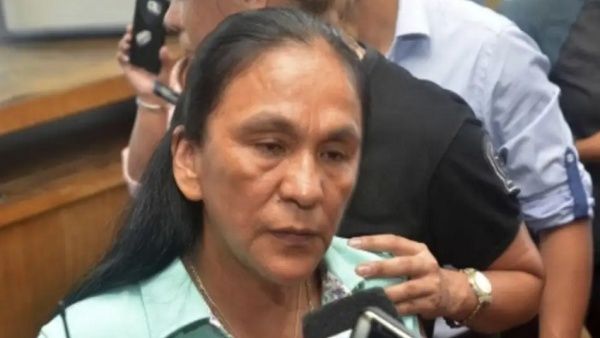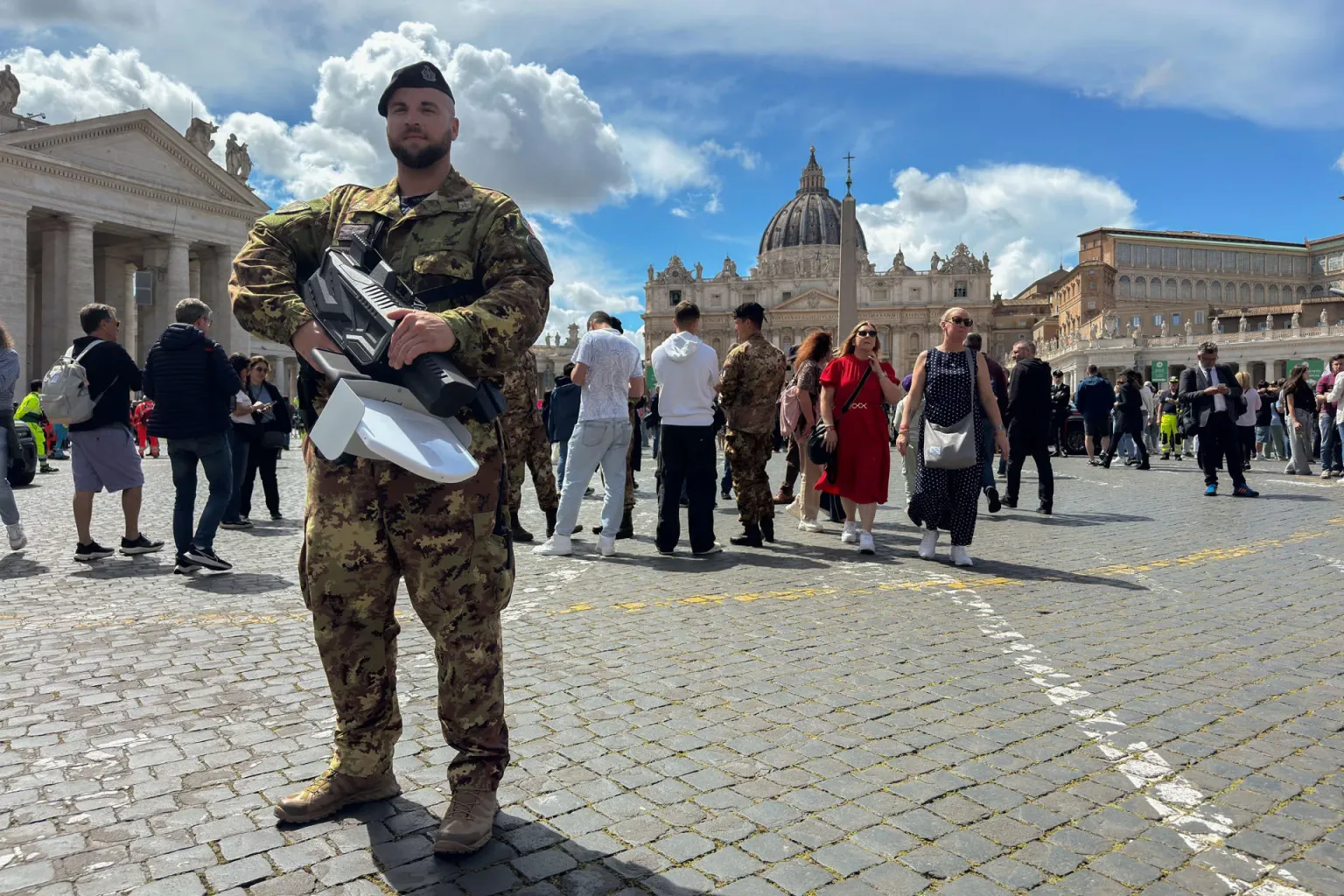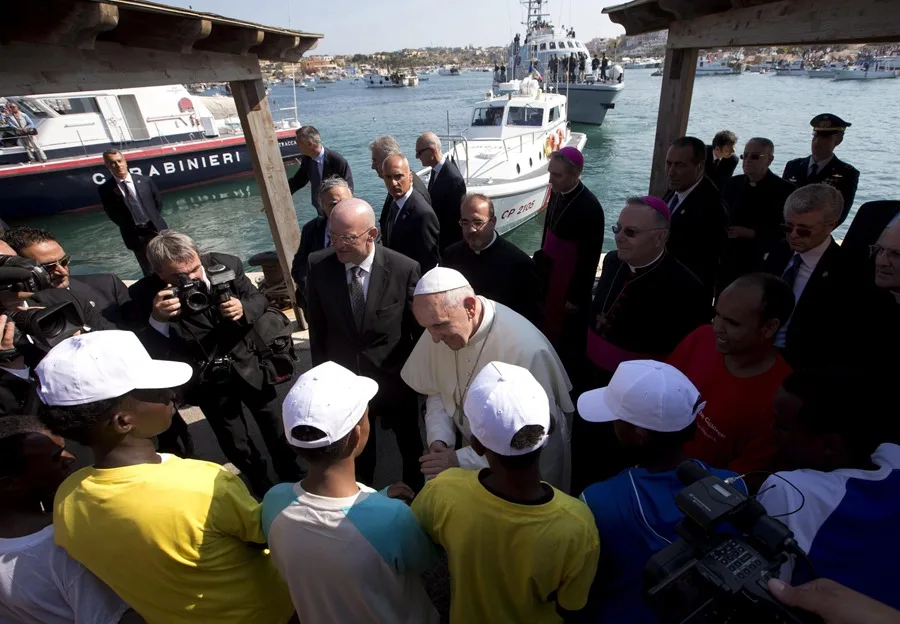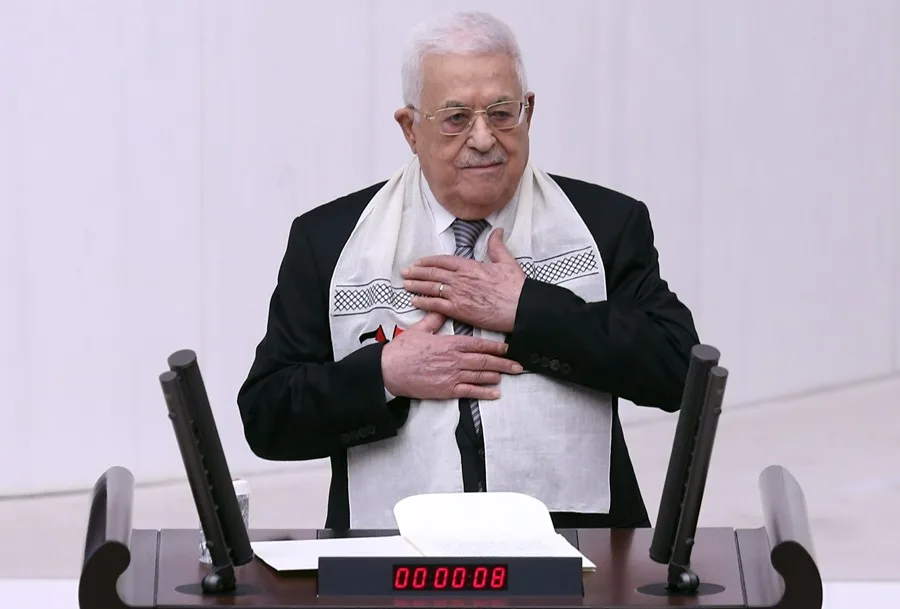The complexity of the transfer of Pope Francis’ coffin through the center of Rome, from St. Peter’s Vatican to the Basilica of Santa Maria Maggiore, where he will be buried, is the main concern for the Italian authorities, the head of Civil Protection, Fabio Ciciliano, acknowledged on Thursday.
That part of the device, which will take place on Saturday after the funeral, presents important logistical, infrastructure and security challenges, the official admitted at a press conference, in which he also said that the number of faithful who will pass through the burning chapel before, about 61,000, will increase in the coming hours.
On Saturday, after the funeral, his body will be taken in a vehicle in a solemn passage to the Roman basilica of Santa María La Mayor, to be buried in a chapel, as the Argentine pontiff arranged in life, which will collapse the center of the Italian capital.
“I remember that the burial ceremony will be a private ceremony, while immediately after the faithful will be given the opportunity to reach the side of their holiness, and obviously the sustained concentration of faithful must be taken into great consideration,” said Ciciliano.
The route of this funeral procession, which will extend over six kilometers, will be analyzed today in a meeting by those responsible for the organization, who are carrying out a “complete evaluation”.
Ciciliano focused on the exceptional fact that Francisco’s death has coincided with the Jubilee year, and that this is also a time when Rome is usually full of tourists, so it is difficult to estimate the number of people who will attend to follow the funeral.
Despite warning that parallels cannot be established with the death of John Paul II in 2005, Ciciliano reiterated that “we are estimating around 200,000 people, although we do not know if they will be deployed in St. Peter’s Square or along the funeral procession” to Santa María la Mayor.
Meanwhile, the number of faithful who will pass through the burning chapel of Pope Francis, which until 1:00 p.m. this Thursday already amounted to 61,000, will rise significantly in the next few hours, until Friday it closes at 19.00 (17.00 GMT) for the ceremony of closing the coffin before the funeral on Saturday, he anticipated.
The person in charge drew attention to the significant drop in temperatures at night, so he called on the faithful to dress like “an onion” to be able to add or remove layers as needed.
Regarding the arrival of new faithful in Rome, he said that there are 260,000 seats available to travel by train, and that on the day of the funeral about 500 buses to the Italian capital are expected to arrive.
“There will be state, commercial and private flights that will arrive at Fiumicino and Ciampino airports. We have also maintained Pratica di Mare as an airfield,” he added.
He also referred to the reception of the hundreds of world leaders and authorities who will be in Rome to attend the funeral, including the president of the United States or the kings of Spain, which he considered “very complex.”
The preparations “are being developed in close collaboration with the Prefecture of Rome for those aspects related to security, since there are elements that overlap,” he said.
This difficulty grows due to the fact that after the funerals most of these leaders will return immediately, but others prefer to stay in the city.
After the funeral, the second phase of the Civil Protection deployment will be activated, which includes the conclave to elect the new pope, when the forecasts point to an even greater number of faithful, which will also coincide with other massive events such as the final of the Soccer Cup on May 14.




























































































